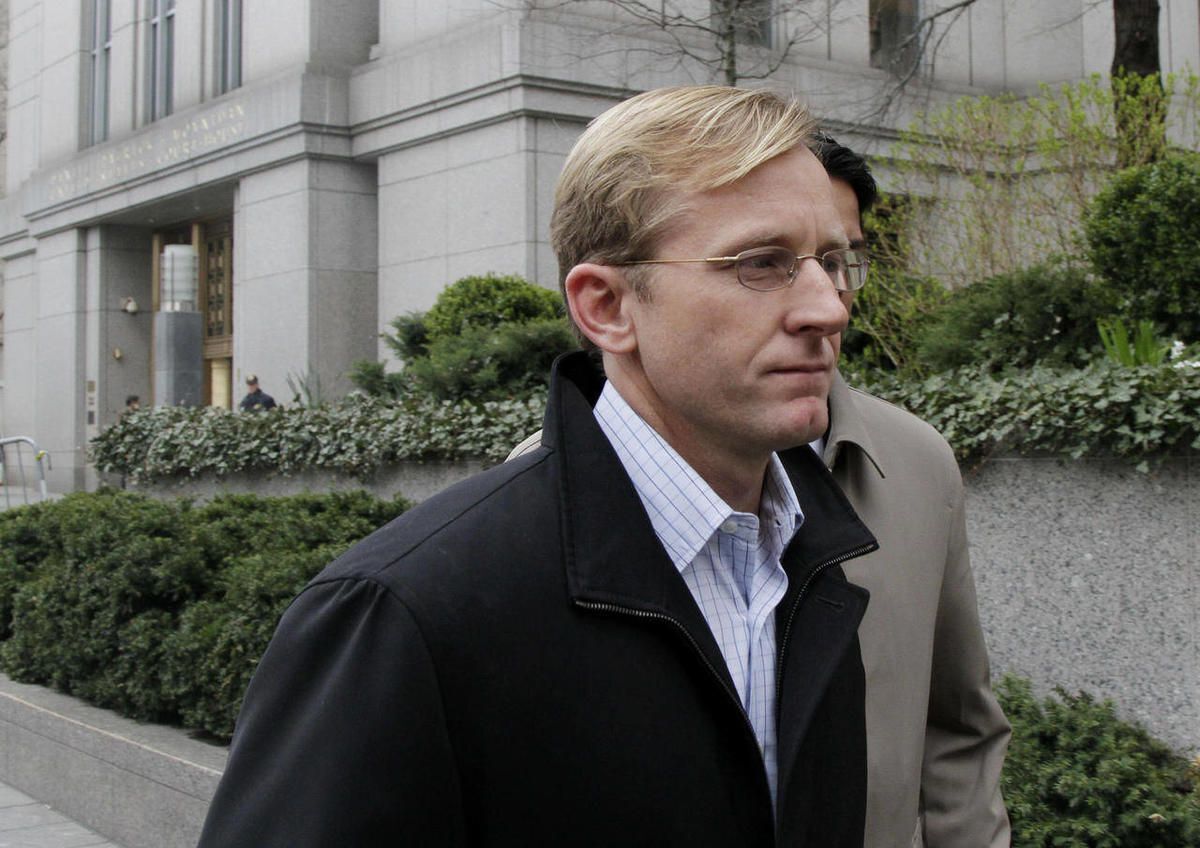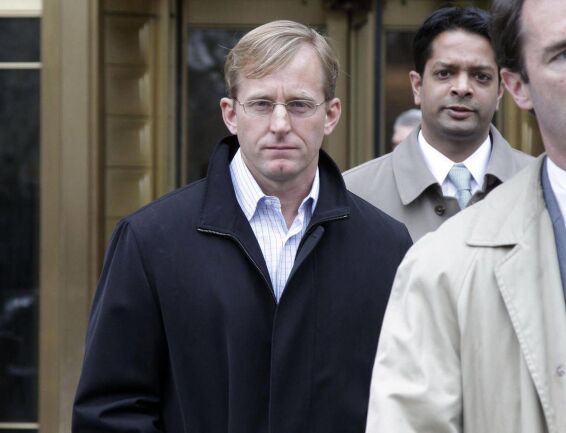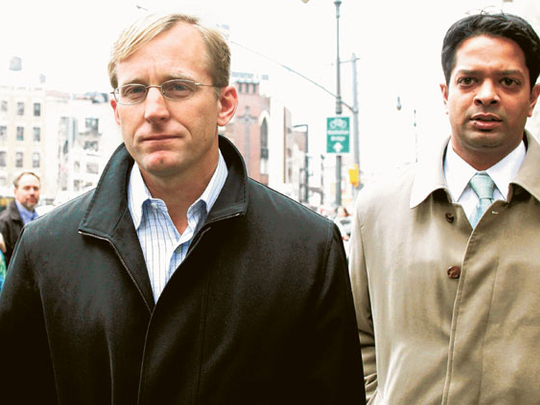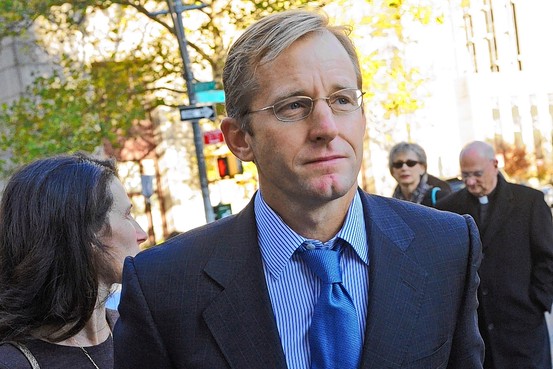Introduction
Allegations of illegal behavior have placed Dr. Yves Benhamou under the investigation of the Securities and Exchange Commission (SEC), creating a captivating narrative at the crossroads of medicine and finance. There are concerns that Benhamou, a French doctor and consultant in charge of a pivotal clinical trial for a possible hepatitis-C medication, has violated anti-fraud clauses in federal securities laws. Here we take a look at the claims, at how Dr. Benhamou is said to have broken the anti-fraud rules, and at what might happen legally as a result.
Summary Of SEC Allegations

Yves M. Benhamou
In the middle of the accusations leveled by the SEC is Dr. Yves M. Benhamou, a French physician and advisor. Benhamou was a consultant for Human Genome Science, Inc. (HGSI) and helped oversee the clinical study for Albuferon, a medicine that could be used to treat hepatitis-C. Because of his role on the trial’s governing Steering Committee, he had access to sensitive, non-public information regarding the trial’s development and results.
Claims Of Illicitly Sharing Important, Non-Public Information About Hgsi’s Albuferon Clinical Trial With A Hedge Fund Portfolio Manager
Dr. Benhamou is facing allegations from the SEC over his alleged illegal conduct including the disclosure of material non-public information about HGSI’s Albuferon clinical study to a hedge fund portfolio manager. Issues such as major adverse events and the advice by an independent safety committee to stop using the 1200 microgram dosage were addressed in this data, which was gathered during Phase 3 of the experiment. According to the SEC, Benhamou was able to help the hedge fund sell six million shares of HGSI stock strategically. Which helped them avoid losses of at least $30 million.
His position on the Steering Committee made this possible, according to the SEC. Section 17(a) of the Securities Act of 1933 and Section 10(b) of the Securities Exchange Act of 1934 and Rule 10b-5 thereunder are the federal securities statutes that are the subject of the allegations. Among the remedies sought by the SEC include pecuniary fines, disgorgement of ill-gotten gains with prejudgment interest, and injunctions against future violations. The seriousness and legal ramifications of the alleged wrongdoing are further demonstrated by the concurrent criminal investigation by the United States Attorney’s Office.
Yves M. Benhamou’s Accusations
A Gratuity For The Portfolio Manager
Participation On The Clinical Trial Steering Committee For Hgsi
Dr. Yves M. Benhamou’s position in the Steering Committee supervising Human Genome Science, Inc.’s (HGSI) Albuferon clinical trial is central to the insider trading claims against him. With his privileged position on this committee, Benhamou was privy to sensitive information on the clinical trial’s management and supervision, including details about its successes, failures, and other secret matters.
Sharing Important, Confidential Details With The Portfolio Manager Regarding Issues With The Phase 3 Trial
The supply of substantial, non-public information to a manager of a hedge fund’s portfolio is at the center of the SEC’s claims against Benhamou. The details here are all about issues that came up in the third phase of the Albuferon study. Allegedly, Benhamou, in his capacity as a member of the Steering Committee, leaked information regarding the difficulties encountered by the trial, such as major side effects and the possibility of stopping the 1200 microgram dosage.
Friendship And Consulting
In His Dual Capacity As Portfolio Manager And Consultant, Benhamou
Another accusation leveled by the SEC is that Benhamou, who was a member of the clinical trial’s Steering Committee, also consulted for the portfolio manager. The ethical and conflict-of-interest issues of a pivotal individual in a clinical research consulting for a financial expert are called into question by this dual function. According to the SEC, this two-sided interaction allowed for the flow of sensitive information that ought to have remained secret.
The Portfolio Manager And Benhamou Have Always Had A Close Relationship
The SEC highlights the fact that Dr. Benhamou and the management of the hedge fund have been friends for a long time. This relationship is brought up to help put the dynamics of the alleged insider trading conspiracy into context. Given their lengthy history of friendship, it’s reasonable to assume that the portfolio manager is aware of Benhamou’s role on the Steering Committee and that the two parties trust each other.
Contextual Factors Influencing Insider Trading

HGSI’s Clinical Trial Phase Three
Trial Three: Albuferon Dosage Variations And A Comparator Medicine
Phase 3 of HGSI’s clinical study for Albuferon, a possible medicine to treat hepatitis-C. This is where the events leading up to the alleged insider trading begin. In this stage, three separate arms were tested, each of which tested a different dosage of Albuferon in comparison to an existing market medicine. In comparison to the current hepatitis C medication this phase has the ability to show that Albuferon, particularly at the 1200 microgram dosage, is efficacious and safe.
Anticipated Outcomes Of The 1200 Microgram Administration
Albuferon at a dosage of 1200 micrograms was the primary target of the trial’s expectations. HGSI was hoping that Phase 3 would prove that this dose was more effective and had fewer side effects than the current top hepatitis C medication. In particular, the 1200 microgram dosage of Albuferon’s commercial potential depended on the outcome of this phase.
Benhamou’s Acquired Knowledge
Fatal Complications And Other Serious Side Effects In The 1200 Microgram Group
As a member of the clinical trial’s Steering Committee, Dr. Yves M. Benhamou was privy to crucial information beginning on or before December 1, 2007. Part of this data set concerned the 1200 microgram group of subjects who experienced two major adverse events, one of which was fatal. The trial’s result and the 1200 microgram dosage’s perceived safety were both affected by the severity of these incidents.
Discontinuation Of The 1200 Microgram Dosage Suggested By The Independent Safety Committee
The independent safety committee advised stopping the 1200 microgram dosage because of the major adverse occurrences, which Benhamou found out about. The decision to continue the trial was heavily influenced by this advice, which was driven by worries about patient safety. A pivotal moment that may have an impact on the course of the trial. And the people involved’s future moves occurred when the safety committee stepped in.
HGSI’s Choice To Lower The Dosage And Make The Change Public
A crucial decision was made by Human Genome Science, Inc. in reaction to the severe adverse occurrences and the recommendation of the safety committee. For individuals in the 1200 microgram group, HGSI decided to lower the dosage to 900 micrograms. Notably, HGSI also chose to announce these modifications to the public. Because it would affect how the financial markets and others saw Albuferon’s viability. This decision was a pivotal point in the chronology.
Benhamou’s Disclosure Of Important Non-Public Information
Benhamou’s Sharing Of Knowledge With The Portfolio Manager
Dr. Yves M. Benhamou is facing charges from the SEC for allegedly conspiring with a hedge fund manager to disclose confidential information on Albuferon’s Phase 3 clinical study. There were a number of stages to this information leak. When bad things happened in the trial, Benhamou gradually revealed more and more data.
Aware Or Should-Have-Known Position Of The Portfolio Manager
An important consideration is whether or if the portfolio manager was aware of the improperness of receiving the information that Benhamou tipped off. The SEC claims that the portfolio manager knew or should have known that receiving secret information regarding the Albuferon trial was unlawful because of their professional relationship. And the fact that the manager was involved in healthcare-related hedge funds. It is crucial to consider the portfolio manager’s knowledge of the information’s source. And nature when determining their level of involvement in the suspected insider trading.
Violating Benhamou’s Confidentiality Obligation To HGSI
Central to the SEC’s complaint is the claim that Benhamou violated his obligation. It is to keep certain information regarding the clinical trial from HGSI. Benhamou had an obligation to maintain the confidentiality of trial-related material in his role as a member of the Steering Committee that oversaw the proceedings. According to the SEC, Benhamou breached this obligation by disclosing material facts to the portfolio manager. It threatened the validity of the trial and may have affected market participants.
Insider Trading And Loss Prevention
The Steps Taken By The Portfolio Manager
Six Healthcare-Related Hedge Funds Sell Nearly Six Million Shares
The manager of the hedge fund’s assets allegedly took many strategic steps after receiving important, non-public information from Dr. Yves M. Benhamou, according to the SEC’s allegations. A total of about six million shares of HGSI stock were sold in these transactions. There appears to have been a concerted effort to liquidate holdings. As the sales were both large in scale and carried out across six healthcare-related hedge funds.
Scheduling Of Sales Relating To Important, Non-Public Details
The timing of the stock sales is a crucial component of the alleged insider trading conspiracy. According to the SEC, the portfolio manager planned the sales around the bad developments in HGSI’s clinical study because he had access to material, non-public information about them. The hedge funds were able to sell their holdings before the trial’s failures were publicized. It gave them a chance to potentially avert large losses.
Cost Effects
Keeping The Hedge Funds From Suffering $30 Million In Losses
Based on the material, non-public information that Benhamou disclosed, the SEC claims that the portfolio manager took action that prevented significant financial losses. Before unfavorable information on the clinical study became public knowledge. Six healthcare-related hedge funds allegedly engaged in insider trading and sold their HGSI holdings. Highlighting the monetary significance of the illegal conduct. The SEC estimates that the saved damages amount to at least $30 million.
The Link Between Hgsi’s Insider Information And The Future Decrease In Share Price
The link between the insider knowledge and the following decline in HGSI’s share price further emphasizes the financial impact. Shares of HGSI fell sharply when the company revealed bad news about the Albuferon clinical study on January 23, 2008. This decline, which is equivalent to a 44% loss from the previous day’s closing, shows how the market has responded to the negative news. The timing of the hedge funds’ sales fits with the subsequent market response. Demonstrating a relationship between the insider information and the share price decrease.
SEC Charges And Legal Repercussions

Federal Securities Law Violations
The Securities Act Of 1933, Subsection 17(A)
Dr. Yves M. Benhamou is facing accusations from the Securities and Exchange Commission (SEC) for allegedly breaking Section 17(a) of the same 1933 Act. Prohibiting deceitful practices in the offering or sale of securities, this clause is a cornerstone provision. The SEC has charged that Benhamou violated this anti-fraud provision by his activities. It include allegedly disclosing important, non-public information to a manager of a hedge fund’s portfolio.
The Securities Exchange Act Of 1934, Section 10(B), And Rule 10b-5 Promulgated Thereunder
Authorities further claim that Benhamou broke the Securities Exchange Act of 1934’s Section 10(b) and Rule 10b-5. Rule 10b-5 lists numerous misleading tactics that are forbidden. While Section 10(b) deals with fraudulent actions related to the buying and selling of securities. Alleged insider trading by Benhamou and its effect on the financial markets are within the purview of these securities regulations, according to the SEC.
The SEC’s Attainment Goals
Prohibition Of Further Infractions
To prevent Dr. Yves M. Benhamou from breaking the federal securities laws again, the SEC is suing him for an injunction. To stop anyone from carrying out the same or similar wrongdoing, an injunction might be issued.
Return Of Unjustified Profits Paid With Interest On Mistakes
The disgorgement of illicitly acquired wealth stemming from the purported insider trading is another remedy that the SEC is pursuing. Individuals are obligated to restitute any earnings or profits acquired by unlawful or improper means through the legal process known as disgorgement. To make sure that people don’t profit financially from their alleged wrongdoing, the SEC usually demands disgorgement. To account for gains that accumulate over time, judgment interest can also be incorporated.
Threat Of Financial Loss
Benhamou is being pursued by the SEC for a financial penalty in addition to injunction and disgorgement. A monetary consequence for the suspected violations of securities laws is the purpose of this punishment. As a form of punishment for the damage done to the stability of the financial markets. Monetary fines are intended to discourage future instances of such wrongdoing.
Concurrent Criminal Proceedings
The U.S. Attorney’s Office
Warning: Benhamou is the Subject of an Additional Criminal Investigation. Dr. Yves M. Benhamou was hit with criminal charges by the U.S. Attorney’s Office for the Southern District of New York at the same time that the SEC filed civil accusations against him. This two-pronged strategy includes pressing criminal and civil accusations against the defendant. The parallel process emphasizes the gravity of the accusations, which are usually more severe when they involve criminal charges.
The SEC And The Us Attorney’s Office Work Together
In the context of a parallel proceeding, the coordination between the SEC and the U.S. Attorney’s Office is remarkable. Criminal prosecution is the purview of the U.S. Attorney’s Office, whereas the SEC is responsible for civil enforcement. It is clear that these organizations are working together to thoroughly resolve the allegations of securities law violations. Cooperation improves the efficacy of judicial proceedings and guarantees a comprehensive investigation and prosecution of the case’s civil and criminal components.
Recognizing Collaboration
In addressing the alleged violations of securities legislation, the SEC expresses gratitude for the coordinated efforts of multiple companies. As an example of the complementary nature of civil and criminal processes, the United States Attorney’s Office for the Southern District of New York has acknowledged the cooperation. Working together with the French Autorité Des Marchés Financiers and the Federal Bureau of Investigations (FBI) shows that the matter is being tackled by multiple agencies and on an international scale.
This admission shows how important it is for countries to work together to solve complicated violations of securities laws. Cooperation between regulatory and law enforcement agencies from various jurisdictions becomes vital in cases involving persons or businesses with worldwide connections. In order to protect the security of financial markets and bring to justice those who may be involved in transnational fraud, it is important to acknowledge the work of our international partners.
Conclusion
Allegations of illegally exchanging essential trial material have generated legal measures in the case of Dr. Yves M. Benhamou, which develops as a complicated junction of medical oversight and financial misconduct. Charges brought by the SEC, which stem from infractions of federal securities laws, highlight the seriousness of the allegations. The case’s legal developments have prompted discussions regarding the need of thorough clinical trial oversight. And the fallout when those in positions of power abuse their position to undermine the values of open and honest financial markets.
Frequently Asked Questions
1. How Precisely Does The Accusation Against Dr. Yves Benhamou Relate To The Breach Of Anti-Fraud Provisions?
Allegations surface that Dr. Benhamou unlawfully shared important, non-public information about the Albuferon clinical study with a hedge fund portfolio manager. Albuferon is a potential treatment for hepatitis-C. In order for the hedge fund to make strategic stock sales before public publication, the claims center on disclosing important trial information, such as major adverse events and a safety committee’s suggestion.
2. To What Extent Do The Allegations Against Dr. Benhamou Violate Any Federal Securities Laws?
Dr. Benhamou is facing charges for allegedly violating two laws: the Securities Act of 1933’s Section 17(a)—which deals with fraudulent activities in the offering or sale of securities—and the Securities Exchange Act of 1934’s Section 10(b)—along with Rule 10b-5—which forbids fraudulent activities in relation to the acquisition or sale of securities.
3. In The Event That The Accusations Are Validated, What Possible Legal Ramifications Could Dr. Benhamou Encounter?
If this turns out to be true, Dr. Benhamou might be subject to pecuniary penalties, disgorgement of illegally acquired wealth plus prejudgment interest, and injunctions prohibiting further violations. The U.S. Attorney’s Office has announced a parallel criminal case, which could make the legal repercussions even more severe.
4. What Effect Did Dr. Benhamou’s Purported Behavior Have On The Stock Market?
The hedge fund was able to escape losses of at least $30 million thanks to strategic stock sales made possible by Dr. Benhamou’s alleged disclosure of crucial, non-public information to the portfolio manager. The close proximity of these sales to the announcement of unfavorable trial results raises the possibility of a link between the insider knowledge and the following market responses.
5. In This Particular Situation, How Does International Cooperation Function?
International cooperation is crucial in addressing abuses of securities laws, as seen by the acknowledgment of cooperation from the U.S. Attorney’s Office, the FBI, and the French Autorité Des Marchés Financiers. When dealing with individuals or businesses that have worldwide connections, it is crucial to coordinate operations across countries, as this case shows.


